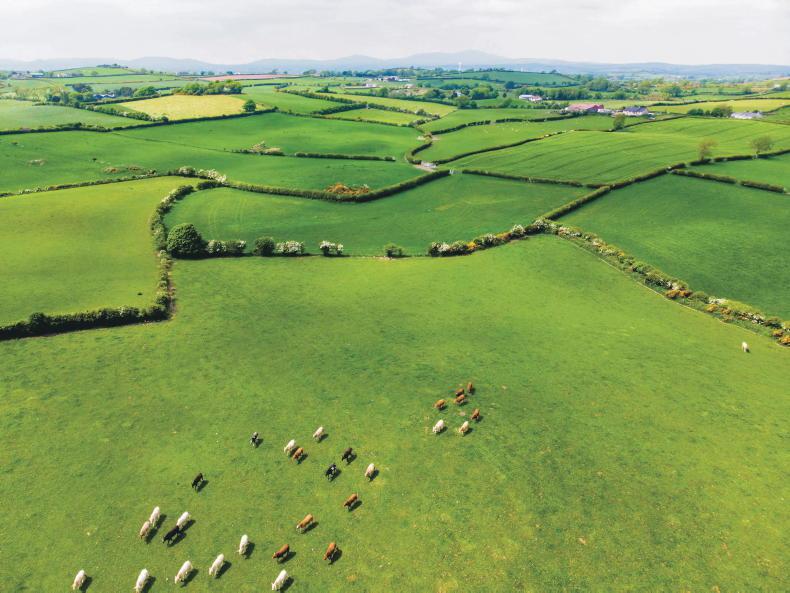After three days in Brussels at the beginning of April, it is clear that agricultural Europe is facing a range of major issues.
The Friends of the Countryside, together with the European Landowners Organisation, held its annual conference with well over 1,000 people attending.
The days before and after were devoted to excellent technical seminars on soil health and biodiversity, especially pollinators and bees and wondering how preserving and enhancing nature by farmers might be sensibly paid for.
Comparable
There was lots of talk about nature credits being comparable to carbon credits but much more difficult to measure.
From a European farmers perspective, we have made very little progress in paying for carbon credits so we should not hold our breath in expecting farm-specific nature payments anytime soon.
I was fascinated that the much-maligned Irish Agri-Climate Rural Environment Scheme (ACRES) came in for a lot of praise as being among the more successful European environmental schemes.
But in reality, the Irish approach of including “space for nature” in the Basic Income Support for Sustainability (BISS) payment scheme may be the most practical approach until something easy to measure is developed.
I was fascinated that the much-maligned Irish Agri-Climate Rural Environment Scheme (ACRES) came in for a lot of praise as being among the more successful European environmental schemes.
At the conference itself, the star speaker was meant to be the new European Commissioner for Agriculture Christophe Hansen.
He was delayed in the European Parliament and simply did a video piece repeating that EU farmers were entitled to operate in a fair, global market and to having fair (it’s a pity he did not say equivalent) production standards applying to food imports.
Whether he will be able to deliver on either aspiration in the context of the Mercosur deal awaiting individual members states ratification remains to be seen.
The former European Commissioner Mairead McGuinness was one of the speakers. She referred to the “over analysis” that often takes place among policymakers in Europe while overlooking just how strong Europe is in terms of wealth
and capacity. A key speaker was the Brazilian minister for trade and international relations
Luis Rua.
Defended
He defended his country’s role in tackling deforestation but he added that he expected Brazil to bring 40 million hectares (or 100 million acres) of land into production which would
increase output.
Given Brazil’s record over the recent decades, going from barely self-sufficient in food to where it is a major world exporter of a whole range of products, this is a statement of intent that should be taken seriously.
Defence spending
As preparations continue for the next stage of CAP reform, with the new policy meant to start in 2028, the inevitable increase in defence spending and how it is going to be accommodated within the budget is dominating thinking.
Meanwhile, within farming the emphasis has undoubtedly switched from the Green Deal to competitiveness.
As finance commissioner, Mairead McGuinness had pushed for greater integration in European banking, including common borrowing, common deposit guarantees and common cross-border regulation.
Progress
Not much progress was made but as ever with Europe, it may take a real crisis as we are in at the moment in order to drive
real progress.
Take home points
1It’s not just in Ireland that the beef price increase has taken people by surprise. Talking to a Spanish dairy farmer, his four-to-five-year-old cull cows have increased in price from €600 - €700 last year to €1,250 this year. Twenty-day-old Angus-cross have gone from €150 - €220 last year to €300 this year. And Spain has had lots of rain so far this year.
2Soil organic matter is important but is primarily driven by climate and location. It’s only after those that management comes into it.
This explains why there is not much difference in Ireland between ploughing and min till on soil organic matter but the differences can be enormous in hot dry areas of Australia and South America.
Compaction can be much more important in Ireland.
3Organic farming on good land is in general lower yielding and less profitable than conventional farming. Organic production tends to be more common in mountainous areas or near densely-populated areas that have a discerning, well-off consumer base that are willing to pay for the perceived benefits.
After three days in Brussels at the beginning of April, it is clear that agricultural Europe is facing a range of major issues.
The Friends of the Countryside, together with the European Landowners Organisation, held its annual conference with well over 1,000 people attending.
The days before and after were devoted to excellent technical seminars on soil health and biodiversity, especially pollinators and bees and wondering how preserving and enhancing nature by farmers might be sensibly paid for.
Comparable
There was lots of talk about nature credits being comparable to carbon credits but much more difficult to measure.
From a European farmers perspective, we have made very little progress in paying for carbon credits so we should not hold our breath in expecting farm-specific nature payments anytime soon.
I was fascinated that the much-maligned Irish Agri-Climate Rural Environment Scheme (ACRES) came in for a lot of praise as being among the more successful European environmental schemes.
But in reality, the Irish approach of including “space for nature” in the Basic Income Support for Sustainability (BISS) payment scheme may be the most practical approach until something easy to measure is developed.
I was fascinated that the much-maligned Irish Agri-Climate Rural Environment Scheme (ACRES) came in for a lot of praise as being among the more successful European environmental schemes.
At the conference itself, the star speaker was meant to be the new European Commissioner for Agriculture Christophe Hansen.
He was delayed in the European Parliament and simply did a video piece repeating that EU farmers were entitled to operate in a fair, global market and to having fair (it’s a pity he did not say equivalent) production standards applying to food imports.
Whether he will be able to deliver on either aspiration in the context of the Mercosur deal awaiting individual members states ratification remains to be seen.
The former European Commissioner Mairead McGuinness was one of the speakers. She referred to the “over analysis” that often takes place among policymakers in Europe while overlooking just how strong Europe is in terms of wealth
and capacity. A key speaker was the Brazilian minister for trade and international relations
Luis Rua.
Defended
He defended his country’s role in tackling deforestation but he added that he expected Brazil to bring 40 million hectares (or 100 million acres) of land into production which would
increase output.
Given Brazil’s record over the recent decades, going from barely self-sufficient in food to where it is a major world exporter of a whole range of products, this is a statement of intent that should be taken seriously.
Defence spending
As preparations continue for the next stage of CAP reform, with the new policy meant to start in 2028, the inevitable increase in defence spending and how it is going to be accommodated within the budget is dominating thinking.
Meanwhile, within farming the emphasis has undoubtedly switched from the Green Deal to competitiveness.
As finance commissioner, Mairead McGuinness had pushed for greater integration in European banking, including common borrowing, common deposit guarantees and common cross-border regulation.
Progress
Not much progress was made but as ever with Europe, it may take a real crisis as we are in at the moment in order to drive
real progress.
Take home points
1It’s not just in Ireland that the beef price increase has taken people by surprise. Talking to a Spanish dairy farmer, his four-to-five-year-old cull cows have increased in price from €600 - €700 last year to €1,250 this year. Twenty-day-old Angus-cross have gone from €150 - €220 last year to €300 this year. And Spain has had lots of rain so far this year.
2Soil organic matter is important but is primarily driven by climate and location. It’s only after those that management comes into it.
This explains why there is not much difference in Ireland between ploughing and min till on soil organic matter but the differences can be enormous in hot dry areas of Australia and South America.
Compaction can be much more important in Ireland.
3Organic farming on good land is in general lower yielding and less profitable than conventional farming. Organic production tends to be more common in mountainous areas or near densely-populated areas that have a discerning, well-off consumer base that are willing to pay for the perceived benefits.






 This is a subscriber-only article
This is a subscriber-only article











SHARING OPTIONS: